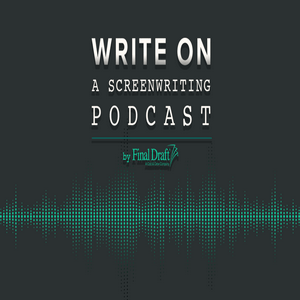Write On: 'All Of You' Writer/Director Will Bridges & Writer/Actor Brett Goldstein
"You have to love all your characters. Even if you're writing a bad guy. You, the writer, have to write them with love and empathy, and treat each character, give each character, a full life and a full arc in your story, even if their screen time is small. Essentially, if you were following that character, they also have a full story, a full life," says actor/writer Brett Goldstein about how he approaches writing characters in film and TV. On today's episode, we chat with writer/director Will Bridges and writer/actor Brett Goldstein about their new film All of You, starring Imogen Poots and Brett Goldstein. The film centers on two best friends, Laura and Simon, who harbor an unspoken love for one another even after a futuristic test matches one of them up with their supposed soulmate. Though the set-up of the story sounds like science-fiction, the movie stays firmly grounded in reality and examines the human need for love and how we often sabotage that love. If you're a fan of the show Black Mirror, you likely know Will Bridges' Emmy-winning episode "USS Callister," the only Black Mirror episode to get a sequel. Brett Goldstein is perhaps most famous for playing Roy Kent on Ted Lasso, where he was a writer on the show before acting on it. He talks about his self-taped audition for the show and how taking that one risk changed everything for him. Bridges and Goldstein talk about working together on an early project where they were forced to bunk in a "spider infested Airbnb," and they also discuss the nuances of their writing in the film All of You, including why they left out all exposition. "We never wanted to be too specific about where Simon and Laura are in their relationship, but we want to draw you in quickly. We want you playing detective: Where are they now? What's going on with them? So we just trusted the audience would get it," Bridges says. They also discuss why you never see Laura or Simon separate from each other. "One of the rules of the film," says Goldstein, "we only see them when they're together. We don't see their lives when they're apart, and that's kind of fun and interesting to me, that we are watching the film of them. We are not watching the film of what it's like to be Simon, what's it like to be Laura, we only know what it's like to be them." To hear more, listen to the podcast.


